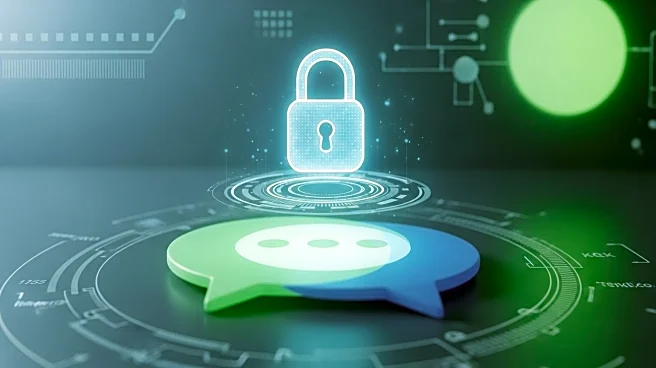What is the story about?
What's Happening?
OpenAI is introducing new safety measures for its AI chatbot, ChatGPT, following incidents where the bot failed to detect signs of mental distress. These measures include routing sensitive conversations to more advanced reasoning models like GPT-5-thinking and introducing parental controls. The parental controls will allow parents to link accounts with their teens, manage responses with age-appropriate rules, and receive notifications of acute distress. OpenAI’s initiative is part of a 120-day plan to enhance safety, working with experts in mental health and well-being.
Why It's Important?
The introduction of these safety measures is crucial as AI chatbots become increasingly integrated into the lives of young people. With a significant number of teenagers using AI companions for social interaction, the potential risks associated with mental health and safety are substantial. By implementing parental controls and routing sensitive conversations to more advanced models, OpenAI aims to mitigate these risks and provide a safer environment for young users. This move also reflects broader industry efforts to address child safety concerns and ensure responsible use of AI technology.
What's Next?
OpenAI plans to roll out these new safety measures within the next month, as part of a broader initiative to improve the safety and reliability of its AI systems. The company is collaborating with mental health experts to define and measure well-being, set priorities, and design future safeguards. Additionally, OpenAI is exploring further enhancements, such as allowing parents to implement time limits on teenage use of ChatGPT and providing in-app reminders during long sessions to encourage breaks.
















